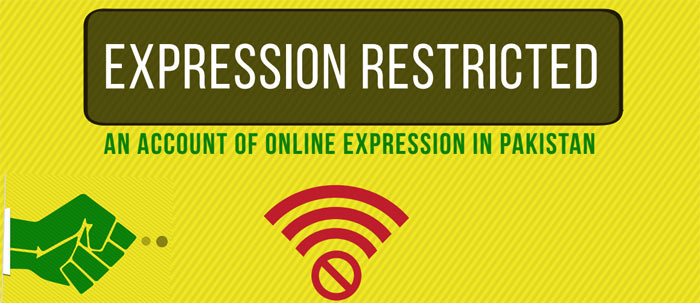By Raza Rumi
Over the past decade the Pakistani government has struggled with how to regulate the Internet and how to tackle cybercrime. In 2009, the Pakistan Electronic Crimes Ordinance (PECO) lapsed. It had only been in effect for two years, but an attempt to resurrect it was prevented by IT industry and civil society pressure, who denounced its measures as draconian.
In a more recent bid to regulate cyberspace, the government rejected an industry proposed bill–an alternate to PECO–and made public a draft of introduced its own version of the Prevention of Electronic Crimes Bill (PECB) in April 2015. The draft bill called for cracking down on cyber terrorism, fraud, and identity theft. However, in a clever overreach, the law also criminalized everyday activities such as sending text messages without receiver’s consent, criticism of individuals–even public figures–and allowed for the removal of content against government, religion, national policies, armed forces on social media forums. Worse yet, the law-enforcement officials were granted extraordinary powers to gain access to Internet traffic and data of citizens without a necessary judicial warrant and review.
There is no question that the country needs a legal framework for cybercrime to address the new challenges that have emerged with the spread of ICTs and the rise of new media technologies. In recent years, social media platforms have become more influential with the potential to set and drive the political agenda. Tweets from politicians, government representatives, generals, media personalities, and even ordinary citizens make headlines. At the same time, the Internet is also open to abuse by extremists. Many terror outfits–not just those in Pakistan–have been using new media to their advantage. In particular, technology helps wage a psychological war, influence narratives, peddle propaganda, and sometimes even aids in terrorist recruitment and attacks in the country.
Across the globe, citizen freedoms are under threat often in the name of security. Mass surveillance and violations of privacy are now becoming the new “normal.” Pakistan’s case is no exception and the draft PECB has led to a robust criticism and resistance by human rights groups, digital activists, civil society, and sections of the media. Its punitive measures are clear attempts to undermine freedom of press, freedom of expression, and the right to use the Internet. Legal experts and IT industry practitioners have also criticized it.
The government bill was first placed before the National Assembly Standing Committee on Information Technology and Telecom in April 2015. Proceedings in the standing committee were dominated by government and the bill was hurriedly approved. However due to objections from opposition to address concerns of citizens, it was once again pushed back to the standing committee. In September 2015, a slightly modified iteration of the bill was forcibly cleared through the committee, ostensibly at the request of the Minister of Information Technology, without a proper debate among legislators. Members of the committee were not shown the final draft of the law, yet a vote was taken.
On April 13, 2016, in an undemocratic fashion, the national assembly passed this bill. At the time of voting in the national legislature, only 30 legislators were present. Rules require presence of a quarter of legislators for undertaking parliamentary business. No one objected to the voting on a law vital for citizen freedoms and digital rights in such a hasty manner. The 12 opposition legislators present in the assembly, didn’t register their protest against this putsch by the government. Was it apathy, a capitulation to the executive? The reason is not known.
Legal experts and IT specialists opine that the law incorporates vague and technically flawed definitions, and extends overly broad powers to the executive branch. For instance, section 34 empowers the Telecommunication Authority to remove or block any information passing through any information system, for instance posted on websites or social media, if required, in the interest of “glory of the religion, security or defence of Pakistan, public order and decency or morality.” The Pakistani government has a history of blocking websites in the name of national security and religion, and this would now make it entirely legal.
Pakistan’s unfair proposed law also criminalizes anything that “harms the reputation” of another, which broadly applied can extend to political criticism in the form of analysis, commentary, blogs, and cartoons. This is a direct effort to curb social media discussions that entail criticism of the government and the military. While the print and electronic media to a great degree have been tamed by the state, the new media technologies have been freer, allowing for reporting and commentary that is not permissible in mainstream media platforms.
It is unclear as to why the elected government and the parliament are facilitating instruments of authoritarianism. Muzzling of media freedoms–including clamping down on digital media–will directly negate the constitutional freedoms of the citizens. A democracy is inconceivable without freedom of expression. The new law is evidently an assault on the prospects of democracy in the country.
Pakistan’ Parliament must reject the current version of PECB and the suggestions put forth by civil society and legal and IT experts should be taken into account to improve the cybercrime law.
Raza Rumi is is a scholar in residence at Ithaca College and a non-residential fellow with the Reagan-Fascell Democracy Fellows Program at the National Endowment for Democracy.
Cover image by NetFreedom.pk accessible here.


Comments (0)
Comments are closed for this post.